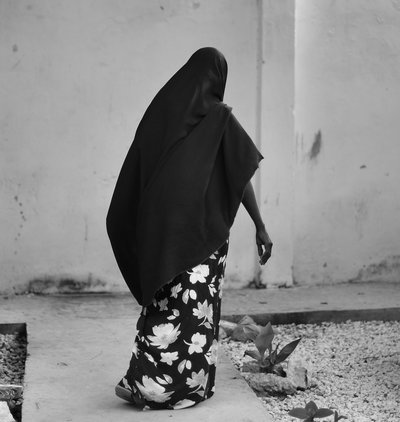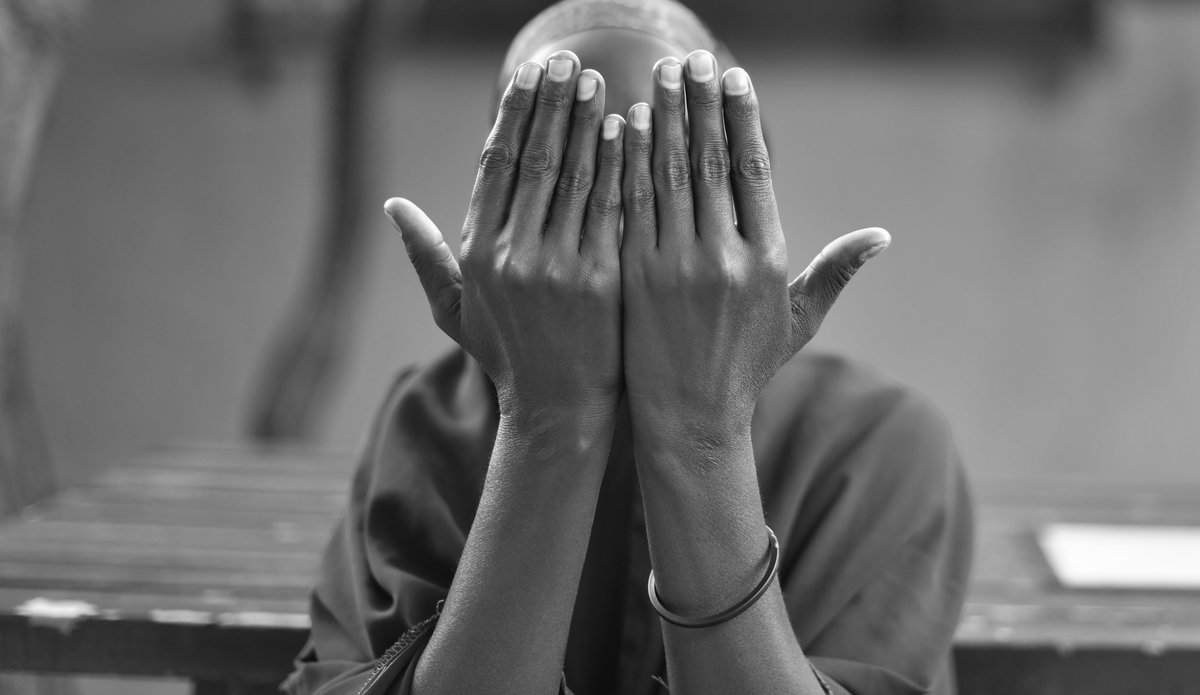Amina Ibrahim: Rape broke my spirit and stole my happiness
“He crept into our house, held me down and forced himself on me repeatedly.”
So Amina Ibrahim* recalls the terrifying night when an intruder entered her house in south-central Somalia as she slept with her children, among them a four-day-old newborn, and violently raped her.
Physically challenged by the long-term effects of polio, Amina could not run to escape her attacker. Her main concern was not to awaken her young children.
“After the ordeal, I was numb, and remained on the hard, cold floor until my husband returned home at daybreak,” recalls Amina, adding that the rapist disappeared into the night with her mobile telephone and left her with no means of communication.
“I felt searing pain all over my body. You know, I hadn’t fully recovered from the birth of my baby,” she says. “I felt weak, exhausted and powerless. I had no energy to scream for help.”
Despite growing up during some of Somalia’s most turbulent years, nothing had prepared Amina for the traumatizing experience. The physical ordeal compounded her disability, and her mobility became even more limited. Long after that shattering night, she felt overwhelmed by her emotions.
“I was in shock and cried for days on end. I lost interest in my baby, couldn’t bond with her. I had lost all feelings,” she recollects.
Amina’s assailant, who is still at large, may have had prior knowledge about her husband’s absence from home that night. In her village in south-central Somalia’s Lower Shabelle region, men often leave their homes to avoid being forcibly recruited by the militant group Al-Shabaab.
Stories like Amina’s are unfortunately common in Somalia, yet most remain untold.
Over the past year, the United Nations verified more than 330 cases of sexual violence attributed to armed actors in Somalia, out of which 75 were perpetrated by Al-Shabaab. The militant group is also known to force women and girls into sexual slavery, trafficking for sexual purposes, forced marriages and pregnancies, and prostitution.
Three years ago, the UN General Assembly proclaimed 19 June as the International Day for the Elimination of Sexual Violence in Conflict to raise awareness and stand in solidarity with survivors of conflict-related sexual violence – women, men, girls and boys.
From stigma to justice

In a country where survivors of conflict-related sexual violence face exclusion and stigmatization, it is not surprising that the vast majority of victims in Somalia do not report the crime, according to experts. It is estimated that for each rape reported in connection with conflict, between ten and 20 cases go unreported.
Unlike many rape victims, Amina was fortunate to receive her husband’s support. The mother of seven describes her husband as “most caring and loving,” and praises him for staying by her side throughout the darkest moments. He continues to play an instrumental role in her physical and emotional healing process.
“Rape broke my spirit and stole my happiness. But he has been a blessing in my life,” says Amina.
Soon after the ordeal, the family moved to Afgooye, an agricultural town 30 kilometres southwest of Mogadishu. There was little left for them in their home village, as drought had wiped out all their livestock before the onset of the Gu rains, leaving them hungry and even more vulnerable. From Afgooye, they moved to the Saad camp for internally displaced persons at Kilometer 13 on the outskirts of the capital, in hopes of receiving support.
“When we arrived at the camp, the authorities helped us build a makeshift house and gave us tarpaulin, which we used to cover the roof,” says Amina, who also decided to seek medical and counselling services at the camp.
Amina hopes that one day her attacker will be held accountable for his crime.
“Given a choice, I would prefer the courts of law over the traditional system,” she says. “What good is it to me to see my molester walking free?”
To put an end to this widespread problem, the Federal Government of Somalia has taken concrete steps to end the impunity enjoyed by perpetrators of sexual crimes. The cabinet recently approved a Sexual Offences Bill, which establishes stiff penalties for sexual offenders and their collaborators. The bill is currently awaiting parliamentary and presidential approval. Once enacted, the new law will take precedence over the traditional justice system, which has been a boon to sexual offenders on account of the light sentences it usually metes out for grave crimes such as rape.
The United Nations Assistance Mission in Somalia (UNSOM) supports the country’s efforts to eliminate conflict-related sexual violence, working closely with the Federal Government and Federal Member States to engage communities as well as traditional and religious leaders to curb the crime’s incidence.
(*Real name has been changed to protect her identity)
 UN
UN





